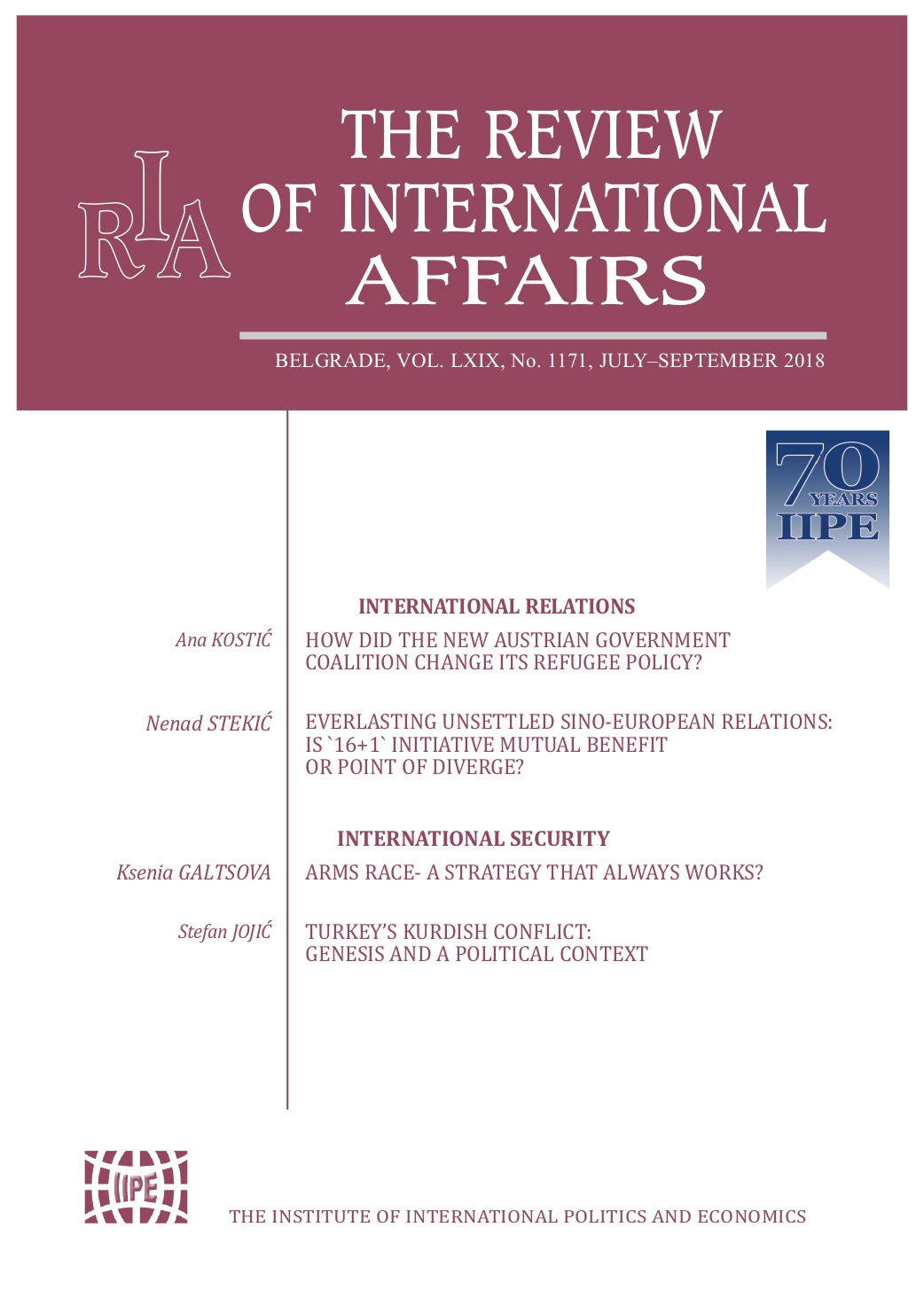Turkey’s Kurdish conflict: genesis and a political context
Turkey’s Kurdish conflict: genesis and a political context
Author(s): Stefan JojićSubject(s): Politics / Political Sciences
Published by: Институт за међународну политику и привреду
Keywords: Turkey; Kurds; Kurdish issue; PKK; Kurdistan Workers Party; Kurdish nationalism; Syrian civil war
Summary/Abstract: The Kurdish issue, that is, the independence aspiration of the largest nation in the world without a state, is the subject of study from a wide variety of aspects. This article deals with the explanation of the Kurdish issue in Turkey from the historical and foreign-policy aspect, as well as with the genesis and the Turkey-Kurdish conflict transformation. The author has also attempted to identify key domestic and international factors that have shaped the Turkey-Kurdish relationship over time. The aspirations of the Turkish Kurds, as a rule, included the taking of ideological standpoints opposite to those of the ruling Turkish political elites. During the XX century, at the time of the secular and pro-Western orientation of Turkish politics, the Kurdish liberation movement was at first painted with religious colors while during the Cold war it was heavily influenced by Marxist-Leninist ideas. This also was a period when the Kurdish question was exclusively the internal issue of Turkey. In the 1990s, the Kurdish political organizations laid the foundations for their ideological transformation into civic-liberal movements, which among other factors contributed to the increase of international public interest for their problems. Today, Turkey’s Kurdish conflict is primarily determined by the dynamic of the Syrian civil war, where the Kurdish liberation movement is being consolidated.
Journal: The Review of International Affairs
- Issue Year: LXIX/2018
- Issue No: 1171
- Page Range: 49-63
- Page Count: 15
- Language: English

